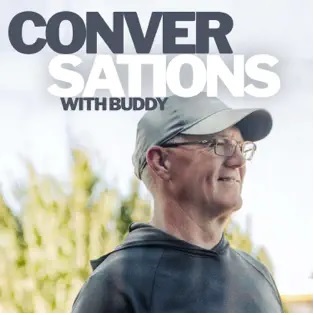Oregon Values and Beliefs Center – 08/15/22 12:45 PM
From July 8–16, 2022, the Oregon Values and Beliefs Center conducted a statewide survey to determine Oregonians’ thoughts on abortion in light of the recent Federal Supreme Court Roe v. Wade ruling. A description of the methodology used for the research is provided below.
The question numbers in this document correspond with the survey questionnaire (Q27-33). Due to rounding, the percentages reported below may not add to 100% or compare exactly to the percentages for the same question in the annotated questionnaire or tabs.
 https://oregonvbc.org/wp-content/uploads/2022/07/Do-you-happen-to-personally-know-someone-such-as-a-close-friend-family-member-or-yourself-who-has-had-an-abortion-300×300.png 300w, https://oregonvbc.org/wp-content/uploads/2022/07/Do-you-happen-to-personally-know-someone-such-as-a-close-friend-family-member-or-yourself-who-has-had-an-abortion-150×150.png 150w, https://oregonvbc.org/wp-content/uploads/2022/07/Do-you-happen-to-personally-know-someone-such-as-a-close-friend-family-member-or-yourself-who-has-had-an-abortion-512×512.png 512w” sizes=”100vw” width=”600″>
https://oregonvbc.org/wp-content/uploads/2022/07/Do-you-happen-to-personally-know-someone-such-as-a-close-friend-family-member-or-yourself-who-has-had-an-abortion-300×300.png 300w, https://oregonvbc.org/wp-content/uploads/2022/07/Do-you-happen-to-personally-know-someone-such-as-a-close-friend-family-member-or-yourself-who-has-had-an-abortion-150×150.png 150w, https://oregonvbc.org/wp-content/uploads/2022/07/Do-you-happen-to-personally-know-someone-such-as-a-close-friend-family-member-or-yourself-who-has-had-an-abortion-512×512.png 512w” sizes=”100vw” width=”600″>
The topic of abortion is personal for most Oregonians; almost three in four people know someone, like a close friend or family member, who has had an abortion, or have had one themselves (70% )(Q28), which is a bit higher than the national average according to a March, 2022 survey conducted by Pew Research Center[1] (59%).
- Women are about 15% more likely than men to know someone who has had an abortion (77% compared to 62%).
- Oregonians who have attended at least some college are much more likely to know someone who has had an abortion (74%-77%) compared to those with a high school degree or less (58%).
- Oregonians with annual incomes over $100K (75%) are also more likely than those who make less than $100K (68%) to personally know someone who has.
- Multnomah residents report a higher rate of a personal connection to someone who has had an abortion compared to those living in the rest of the state (79%, 67%).
Should Abortion be Legal?
About three in four Oregonians think that abortion should be legal in all or most cases (72%) compared to about one in four Oregonians who think that abortion should be illegal in all or most cases (23%)(Q27).
Oregonians in July of 2022 show stronger support for legal abortion than the country as a whole in March of 20221 (72% compared to 61%).
Women are more likely than men to think abortion should be legal (76% to 67%). College graduates are more likely to think abortion should be legal compared to those with some college or less formal education (80% to 65-71%), Those who did not attend college are less sure if abortion should be legal or illegal compared to those with some college or a college degree under their belt (9% to 2-4% saying they don’t know). There is no difference between income levels as to whether abortion should be legal or illegal.
In What Cases do Oregonians Support Abortion?
Oregonians clearly support access to abortion when pregnancy threatens the pregnant person’s life (83%). In other cases, support for access generally declines as pregnancy progresses: 71% support access in the first 6 weeks, 65% support access in the first trimester, and 44% support access in the second trimester (Q33A-D).
Oregonians are the most split when it comes to considering abortion in the second trimester, with 44% supporting access to abortion and 45% opposing access (Q33C).
Multnomah County and those living in the rest of the state come together in agreement when it comes to access to an abortion when the pregnancy threatens the pregnant person’s life (87%, 82%) (Q33D).
Does the Roe v. Wade Decision Change Voting Behavior?
 https://oregonvbc.org/wp-content/uploads/2022/07/On-June-24-the-Supreme-Court-overturned-Roe-v.-Wade.-Does-this-make-you-more-likely-or-less-likely-to-vote-in-November-If-you-havent-heard-anything-about-this-please-say-so.-2-300×300.png 300w, https://oregonvbc.org/wp-content/uploads/2022/07/On-June-24-the-Supreme-Court-overturned-Roe-v.-Wade.-Does-this-make-you-more-likely-or-less-likely-to-vote-in-November-If-you-havent-heard-anything-about-this-please-say-so.-2-150×150.png 150w, https://oregonvbc.org/wp-content/uploads/2022/07/On-June-24-the-Supreme-Court-overturned-Roe-v.-Wade.-Does-this-make-you-more-likely-or-less-likely-to-vote-in-November-If-you-havent-heard-anything-about-this-please-say-so.-2-512×512.png 512w” sizes=”100vw” width=”600″>
https://oregonvbc.org/wp-content/uploads/2022/07/On-June-24-the-Supreme-Court-overturned-Roe-v.-Wade.-Does-this-make-you-more-likely-or-less-likely-to-vote-in-November-If-you-havent-heard-anything-about-this-please-say-so.-2-300×300.png 300w, https://oregonvbc.org/wp-content/uploads/2022/07/On-June-24-the-Supreme-Court-overturned-Roe-v.-Wade.-Does-this-make-you-more-likely-or-less-likely-to-vote-in-November-If-you-havent-heard-anything-about-this-please-say-so.-2-150×150.png 150w, https://oregonvbc.org/wp-content/uploads/2022/07/On-June-24-the-Supreme-Court-overturned-Roe-v.-Wade.-Does-this-make-you-more-likely-or-less-likely-to-vote-in-November-If-you-havent-heard-anything-about-this-please-say-so.-2-512×512.png 512w” sizes=”100vw” width=”600″>
A plurality of Oregonians say the Supreme Court overturning Roe v. Wade will not change their voting behavior in the upcoming election (46%). However, of those who say their voting behavior will change (44%), Oregonians are ten times more likely to vote in November (40%) than less likely (4%)(Q29).
Those who are more likely to vote in November are: women (43% compared to 37% of men) and Democrats and Independents (54% and 38% compared to 30% of Republicans). There are no differences between those living in Multnomah County and the rest of the state in the ways in which they predict this will affect their voting behaviors.
A Majority Would Vote to Reinstate Roe v. Wade
If it were put up to a general vote, a majority of Oregonians would vote to reinstate Roe v. Wade (62%) while a little fewer than a quarter of Oregonians would vote to keep Roe v. Wade overturned (22%)(Q30).
Among those who are more likely to keep it overturned are: men (27% compared to 16% of women), white Oregonians (22% compared to 16% of BIPOC Oregonians), rural Oregonians (29% compared to 16% of urban Oregonians), and Oregonians over the age of 75 (42% compared to 13%-15% of Oregonians under the age of 45).
Some Oregonians Have Already Given Thought to Abortion
A majority of Oregonians had already given some thought to issues around abortion before the Supreme Court’s recent decision to overturn Roe v. Wade (69%)(Q31).
Women are more likely than men to have thought about abortion (74%, 63%).
Those who make $50,000 or more a year (71-79% compared to 63% of those with a lower income), and those with at least a four-year college degree (81% compared to 55-72% of those with less formal education) are more likely to have thought about abortion in the past.
Does This Decision Make You More or Less Likely to Vote in November?
 https://oregonvbc.org/wp-content/uploads/2022/08/Thinking-about-the-State-elections-in-November-are-you-more-likely-to-vote-for-someone-who-is-pro-life-or-pro-choice-2-300×300.png 300w, https://oregonvbc.org/wp-content/uploads/2022/08/Thinking-about-the-State-elections-in-November-are-you-more-likely-to-vote-for-someone-who-is-pro-life-or-pro-choice-2-150×150.png 150w, https://oregonvbc.org/wp-content/uploads/2022/08/Thinking-about-the-State-elections-in-November-are-you-more-likely-to-vote-for-someone-who-is-pro-life-or-pro-choice-2-512×512.png 512w” sizes=”100vw” width=”600″>
https://oregonvbc.org/wp-content/uploads/2022/08/Thinking-about-the-State-elections-in-November-are-you-more-likely-to-vote-for-someone-who-is-pro-life-or-pro-choice-2-300×300.png 300w, https://oregonvbc.org/wp-content/uploads/2022/08/Thinking-about-the-State-elections-in-November-are-you-more-likely-to-vote-for-someone-who-is-pro-life-or-pro-choice-2-150×150.png 150w, https://oregonvbc.org/wp-content/uploads/2022/08/Thinking-about-the-State-elections-in-November-are-you-more-likely-to-vote-for-someone-who-is-pro-life-or-pro-choice-2-512×512.png 512w” sizes=”100vw” width=”600″>
When it comes to the upcoming election in November, Oregonians are almost three times as likely to vote for a pro-choice candidate (58%) than for a pro-life candidate (21%)(Q32).
Men are more likely to vote for a pro-life candidate compared to women (24%, 18%).
Tri-county area and Willamette Valley residents are more likely than those living in the rest of the state to prefer pro-choice candidates (65% and 57% compared to 51%). Conversely, of those living in the rest of the state, 23% prefer pro-life candidates, 10% don’t care, and 12% are undecided.
If it were put up to a general vote, a majority of Oregonians would vote to reinstate Roe v. Wade (62%) while a little fewer than a quarter of Oregonians would vote to keep Roe v. Wade overturned (22%) (Q30).
More men than women would vote to keep Roe v. Wade overturned (27% compared to 16% of women).
Language Choice Could Change the Response
For many Oregonians, their views on access to abortion is more nuanced than simply “for” or “against” legalization, as illustrated by their word-for-word responses (Q34-35):
“I do not believe in abortion, but think a woman has the right to determine what happens with her body.”
Woman, age 65-74, Clackamas County, Native American, American Indian
or Alaska Native
“I might oppose having an abortion around 22-24 weeks, if there was universal Healthcare/ better funded social programs AND the ability to successfully gestate a baby outside the womb.”
Woman, age 30-44, Columbia County, Hispanic/Latino/a/x and white
“We should maximize freedom to choose and maximize access to birth control so that abortions are available but rare.”
Man, age 75+, Multnomah County, white
“I believe in bodily autonomy. I would like to see more pro-family laws and regulations put in place and abortions reduced in necessity but access to an abortion must always remain legal.”
Nonbinary or gender non-conforming, age 30-44, Marion County, white
Demographic Trends
Identifying what unites us. Understanding what divides us.
Reported below are statistically significant subgroup differences between BIPOC and white Oregonians, urban and rural Oregonians, and age groups. Many of these differences are not major and are presented to inform public education and communications initiatives.
OVBC surveys currently use aggregated data to analyze the opinions of BIPOC residents in comparison to the opinions of residents who identify as white and not another race. BIPOC residents are not a monolith; the grouping represents a wide diversity of races and ethnicities. The findings included in this memo should not be construed such that all people of color are believed to share the same opinions. Disaggregated race data will be provided when sample sizes permit reliability.
- Oregonians aged 45 and older are more likely to personally know someone who has had an abortion than those under age 45 (70%-81% compared to 56%-63%) (Q28).
- The likelihood of knowing someone who has had an abortion rises with age with the exception of Oregonians 75 and older, from 56% of 18-29-year-olds to 81% of 65-74-year-olds, then dropping back down to 74% of those aged 75 and older. This oldest age group would have been at least 25 years old when the supreme court ruled on Roe v. Wade.
- Three in four of those 18-29 are in support of legal access to abortion (77% compared to 59% of those 75+) (Q27).
- Conversely, Oregonians over the age of 75 are more likely to think abortion should be illegal (39%) compared to Oregonians under the age of 64 (17%-22%).
- No age group dips below 50% in preferring pro-choice candidates in November, with the outer extremes being 65% of those 18-29 compared to 50% of those 75+ (Q32).
- There is an increase in support for pro-life candidates as age increases, with 15% of those 18-29 and 36% of those 75+ saying they will be more likely to vote for a pro-life candidate in November.
- Although residents 18-29 are more in support of legal access to abortion, they report having thought about it less in the past than older Oregonians (67% compared to 84% of those 75+) (Q31).
- Approximately two-thirds of nearly every age group would vote to reinstate Roe v. Wade if given the chance (60-65%). For Oregonians 75 or older, half would vote the same (52%)(Q30).
- Oregonians aged 75 and older are far more likely than any other age group to say they would vote to keep Roe v. Wade overturned if they were given the opportunity (42% vs. 13%-28%).
- A majority of all age groups support legal access to abortion when the pregnancy is within the first 6 weeks (60-75%) (Q33A), as well as 14 weeks along or less (57-69%)(Q33B).
- Support is lowest for legal access to abortion among Oregonians 75 or older, except when the pregnant person’s life is threatened (88% of those 65 and older compared to 78-79% of those 18-44)(Q33D).
- Urban Oregonians are more likely to think abortion should be legal in all or most cases compared to rural Oregonians (79% to 61%)(Q27).
- Rural Oregonians are twice as likely as urban Oregonians to think that abortion should be illegal in all or most cases (33% to 16%), and nearly twice as likely to say that, if given the opportunity, they would vote to keep Roe v. Wade overturned (29% rural; 16% urban) (Q27,Q30).
- Urban Oregonians and rural Oregonians are equally likely to personally know someone who has had an abortion (72%)(Q28).
- Urban Oregonians are more likely to vote in the November election due to the Supreme Court’s recent ruling compared to rural Oregonians (44% to 35%)(Q29).
- There is no difference between rural and urban Oregonians as to how much thought they had given to issues surrounding abortion (Q31).
- When it comes to the upcoming State election in November, rural Oregonians are almost twice as likely to vote for a pro-life candidate than urban Oregonians (27% to 16%)(Q32).
- Urban Oregonians are more likely to vote for a pro-choice candidate than rural Oregonians (67% to 47%)(Q32).
- Compared to BIPOC Oregonians, white Oregonians are more likely to say that their voting behaviors will not change due to the Supreme Court ruling (48% to 38%)(Q29), although for both BIPOC and white Oregonians, four in ten say this ruling will increases their will to vote in November (40%, 41%).
- Compared to BIPOC Oregonians, white Oregonians are more likely to have given thought to abortion issues prior to the Supreme Court’s recent ruling (72% to 60%)(Q31).
- There are no differences between BIPOC Oregonians and white Oregonians as to whether abortion should be legal or whether they will vote for a pro-life or pro-choice candidate in the upcoming state election (Q27 & Q32).
- If it were put up to a general vote, white Oregonians are more likely to say they would vote to keep Roe v. Wade overturned compared to BIPOC Oregonians (22% compared to 16%) (Q30).
Methodology: The online survey consisted of 1,572 Oregon residents ages 18+ and took approximately 15 minutes to complete. Respondents were contacted by using professionally maintained online panels. In gathering responses, a variety of quality control measures were employed, including questionnaire pre-testing, validation, and real-time monitoring of responses. To ensure a representative sample, demographic quotas were set, and data weighted by area of the state, gender, age, and education.
Statement of Limitations: Based on a 95% confidence interval, this survey’s margin of error for the full sample ±2.47%. Due to rounding or multiple answer questions, response percentages may not add up to 100%.












